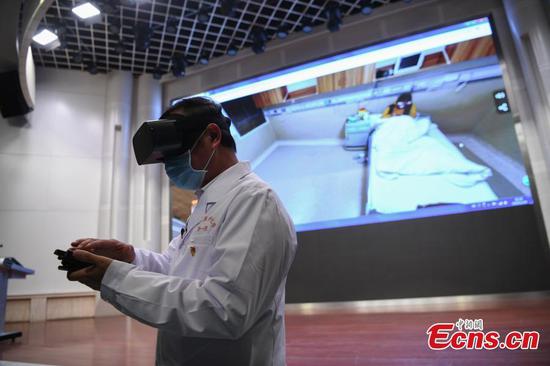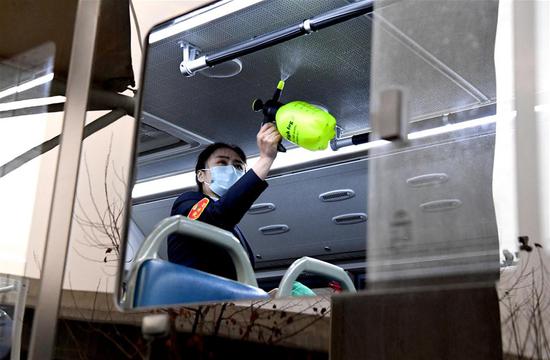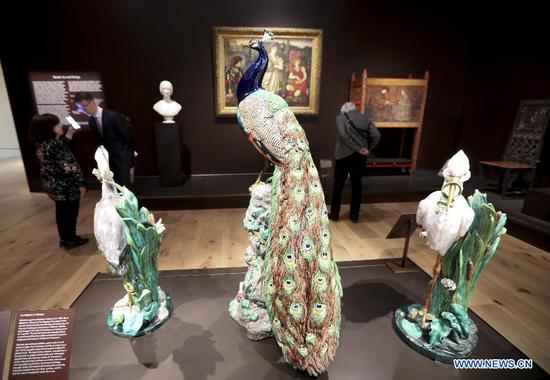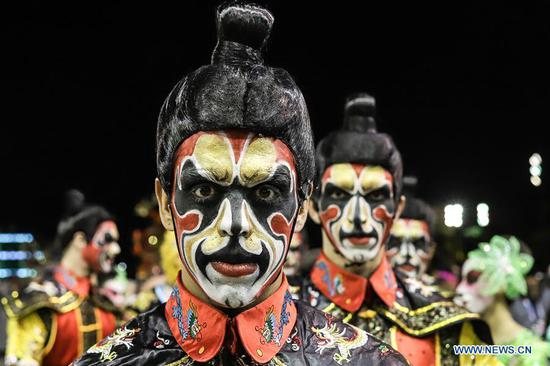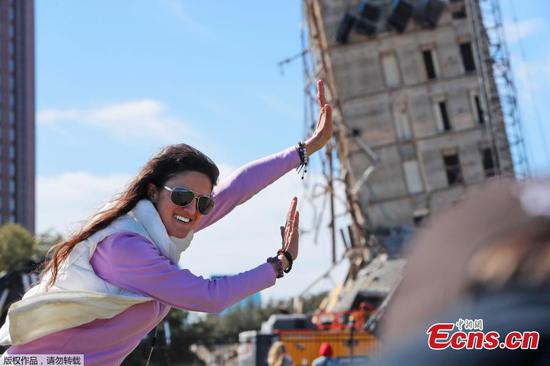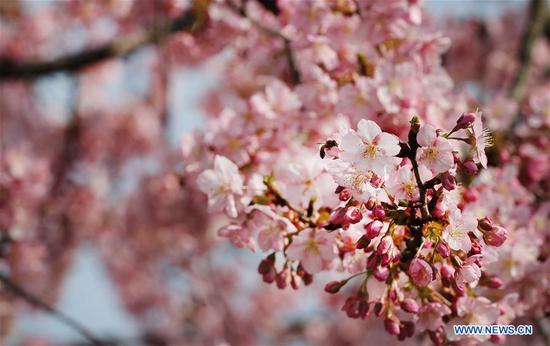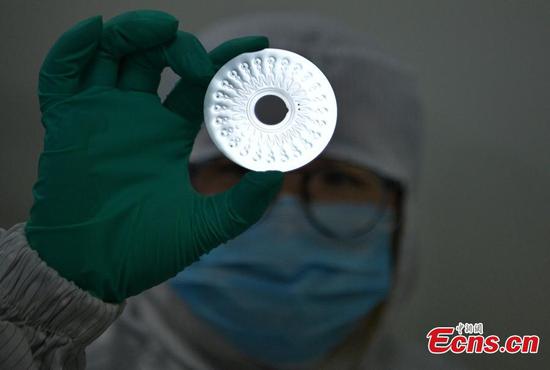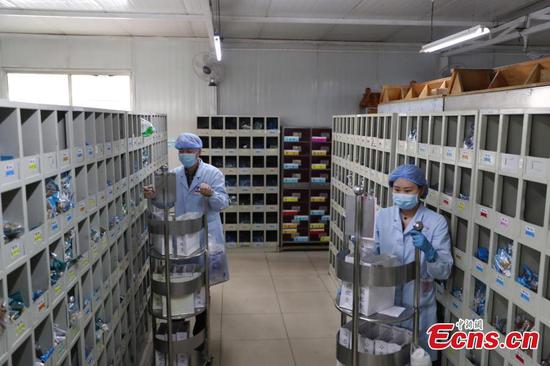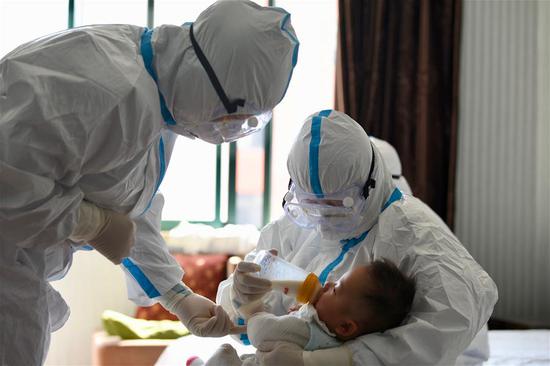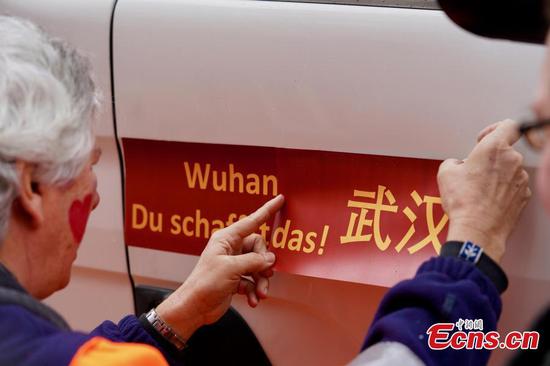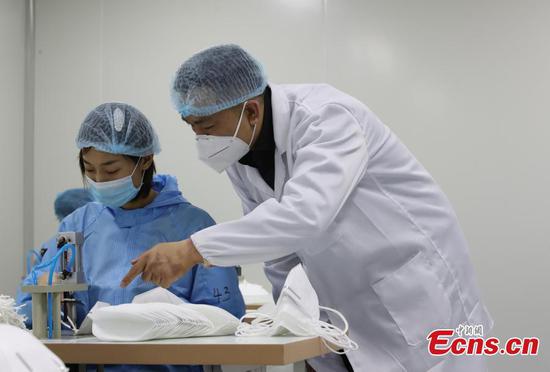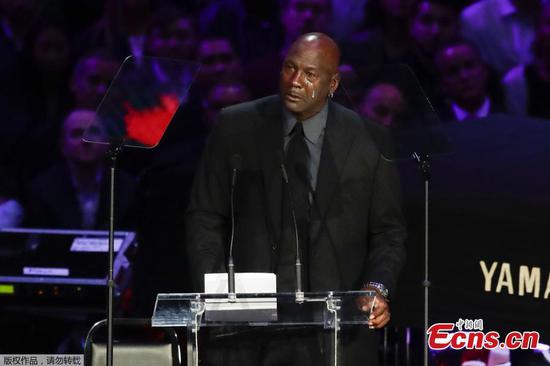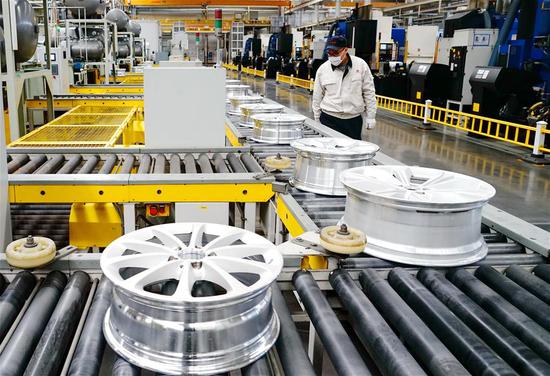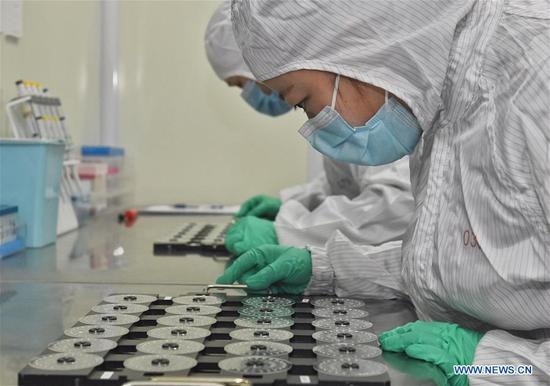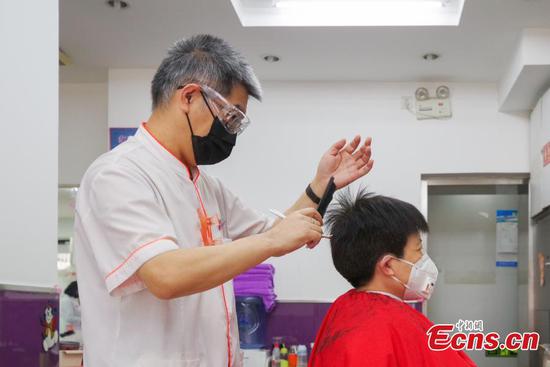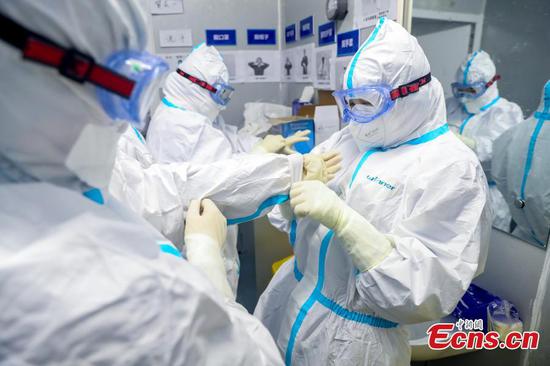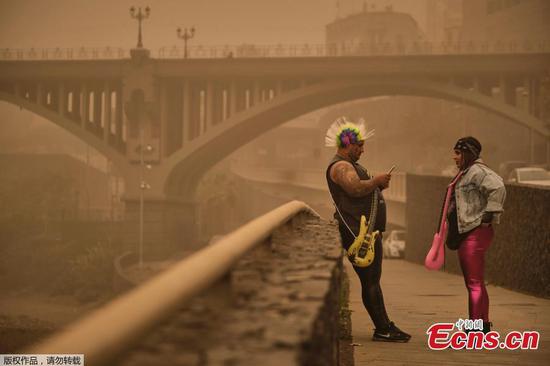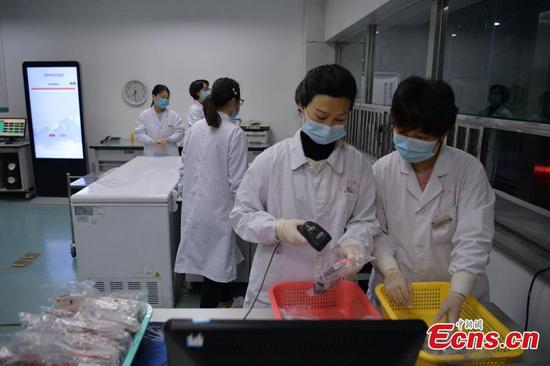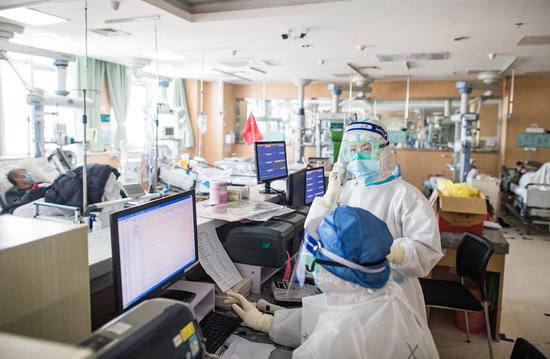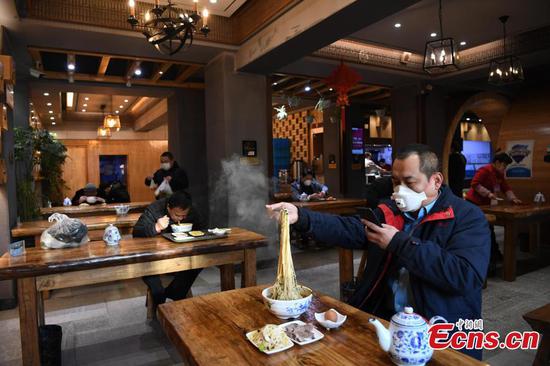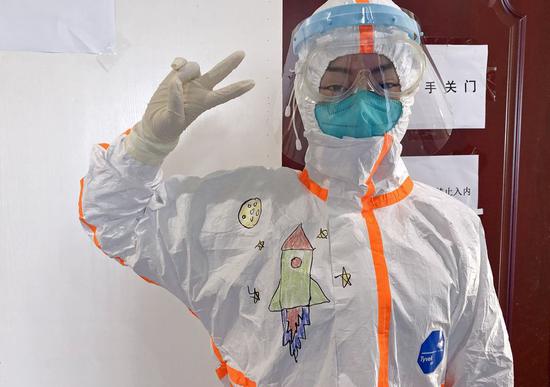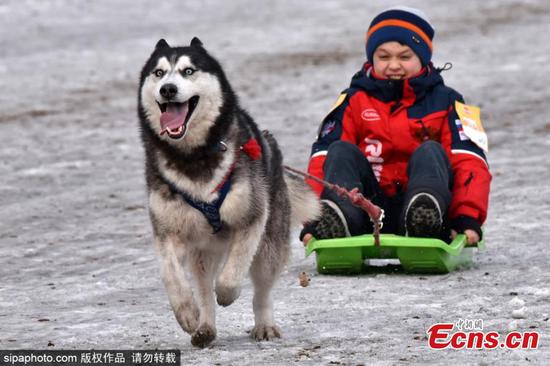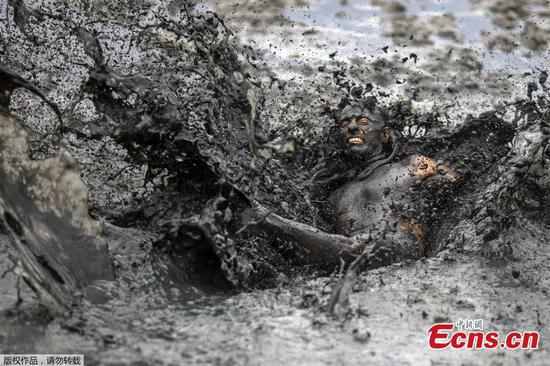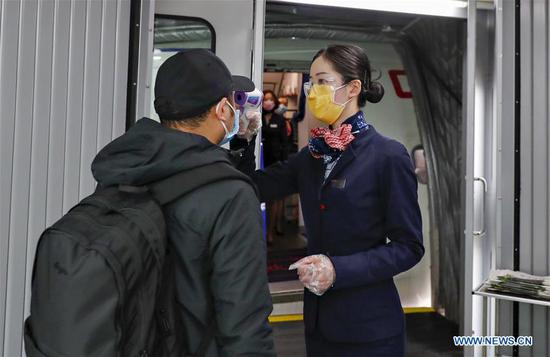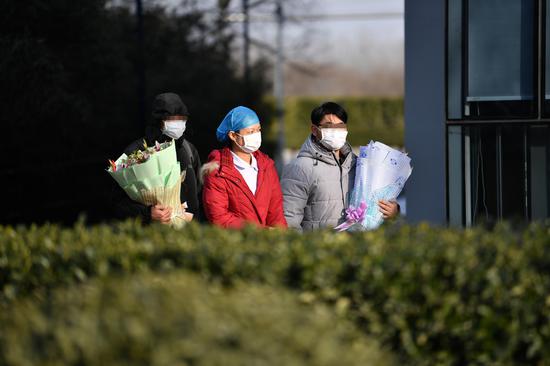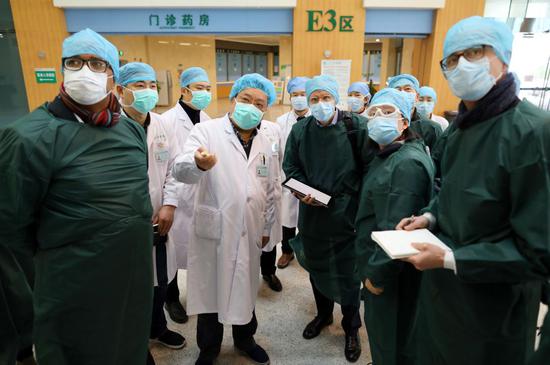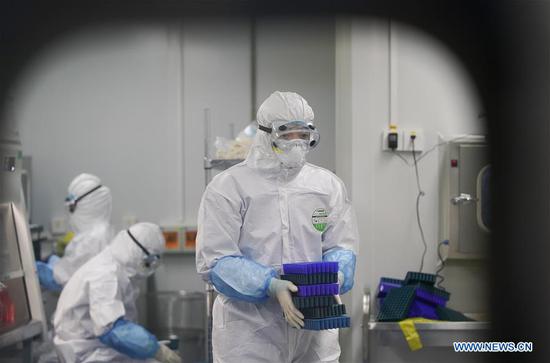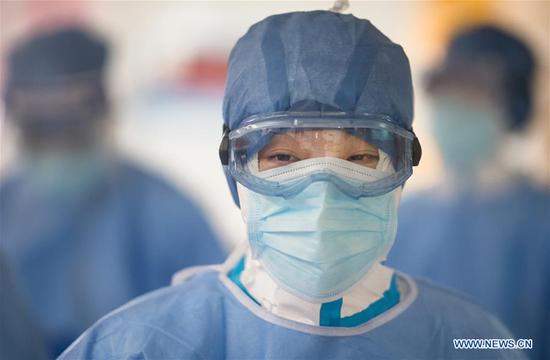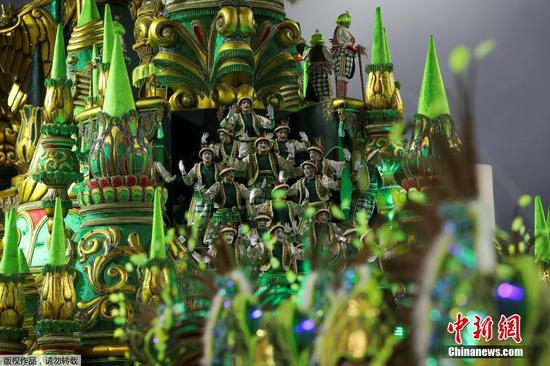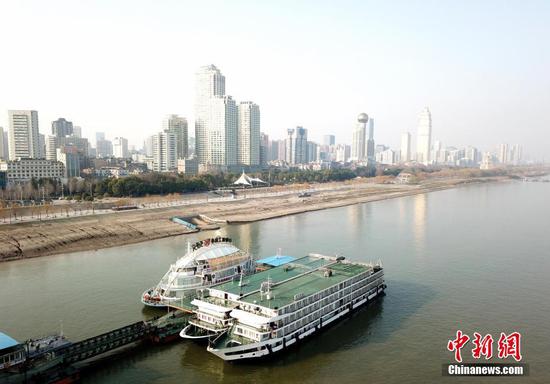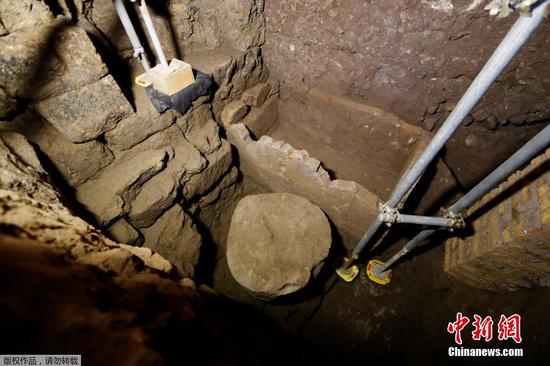A leading U.S. official said he did not expect the coronavirus outbreak to have a "material" impact on the phase one U.S.-China trade deal for now, while a Chinese think tank said there could be possible delay in its implementation and called for ramped-up consultation.
Speaking in Riyadh, Saudi Arabia, where the coronavirus outbreak was a hot topic at a meeting of finance officials from the world's 20 largest economies, U.S. Treasury Secretary Steven Mnuchin cautioned against jumping to conclusions about the impact of what he called a "human tragedy" on the global economy, or on companies' supply-chain decisions, saying it was simply too soon to know.
"I don't expect that this will have any ramifications on phase one. Based on everything that we know, and where the virus is now, I don't expect that it's going to be material," Mnuchin told Reuters late Sunday.
"Obviously that could change as the situation develops. Within the next few more weeks, we'll all have a better assessment as there's more data around the rate of the virus spreading," he said.
The U.S. had confirmed 14 cases of the coronavirus by Monday, apart from the 39 cases among those evacuated from the cruise ship Diamond Princess and from Wuhan. Italy, South Korea and Iran also reported sharp rises in coronavirus cases on Monday.
The uncertainties of the epidemic should be counted in the implementation of the U.S.-China trade deal signed on Jan 15, the Shanghai Institutes for International Studies (SIIS) said in a report published on Monday.
"The biggest impact of the epidemic on China-U.S. economic relations may be the delay in the implementation of their phase one deal," said the report, which is part of a series of analyses on the impact and China's coronavirus countermeasures.
The SIIS report said China has recently adopted measures to fulfill its commitment of increasing imports from the U.S.. Beijing has cut punitive tariffs on $75 billion worth of U.S. imports and expanded the scope of tariff exemption for U.S. goods.
But in the short run, disruption of China's industrial operations and expectation of a downward spiral in economic growth will reduce the country's demand for energy and electrical-equipment imports, according to the report, written by SIIS President Chen Dongxiao and his team.
On Saturday, International Monetary Fund Managing Director Kristalina Georgieva said the global lender forecast growth of the world's second-largest economy to be 5.6 percent this year, 0.4 percentage point lower than predicted in the IMF's World Economic Outlook last month.
"On the other hand, the American government's imposition of a rigorous travel ban on China has already reduced transportation capacity between the two sides," the SIIS report said. "Worse still, the U.S. government is contemplating further restrictions on high-tech exports to China, which will make it even more difficult for China to fulfill its purchasing commitment.
"Therefore, it is necessary for both sides to strengthen consultation and negotiation during and after the epidemic, in order to facilitate the implementation of the phase one deal," the report suggested.
The COVID-19 epidemic could have only "limited impact" on the U.S. economy, thanks to its huge size and market power. However, it will harm American enterprises that have large investments or close economic ties in China, according to the report.
It said that U.S. companies, such as Starbucks, Apple and Disney, have suspended operations in China, while Delta, United, and American Airlines have halted many flights serving the two countries. In addition, General Motors, Ford and Fiat Chrysler have closed their factories in China.
Hubei province, the epicenter of the novel coronavirus outbreak, reported 499 confirmed cases of the virus infection on Monday, bringing the total confirmed cases in the hardest-hit province to 64,786, the China National Health Commission said on Tuesday.
Although the situation in Wuhan and the rest of Hubei remains grim, things are improving in other parts of China, where local authorities are trying to strike a balance between fighting the epidemic and reviving the economy with tailored measures, SIIS President Chen said.
"Therefore, the epidemic is very hopeful to be kept in check within the first quarter, with controllable impacts on China's economy for the whole year, despite its severe short-term damage," Chen said.









